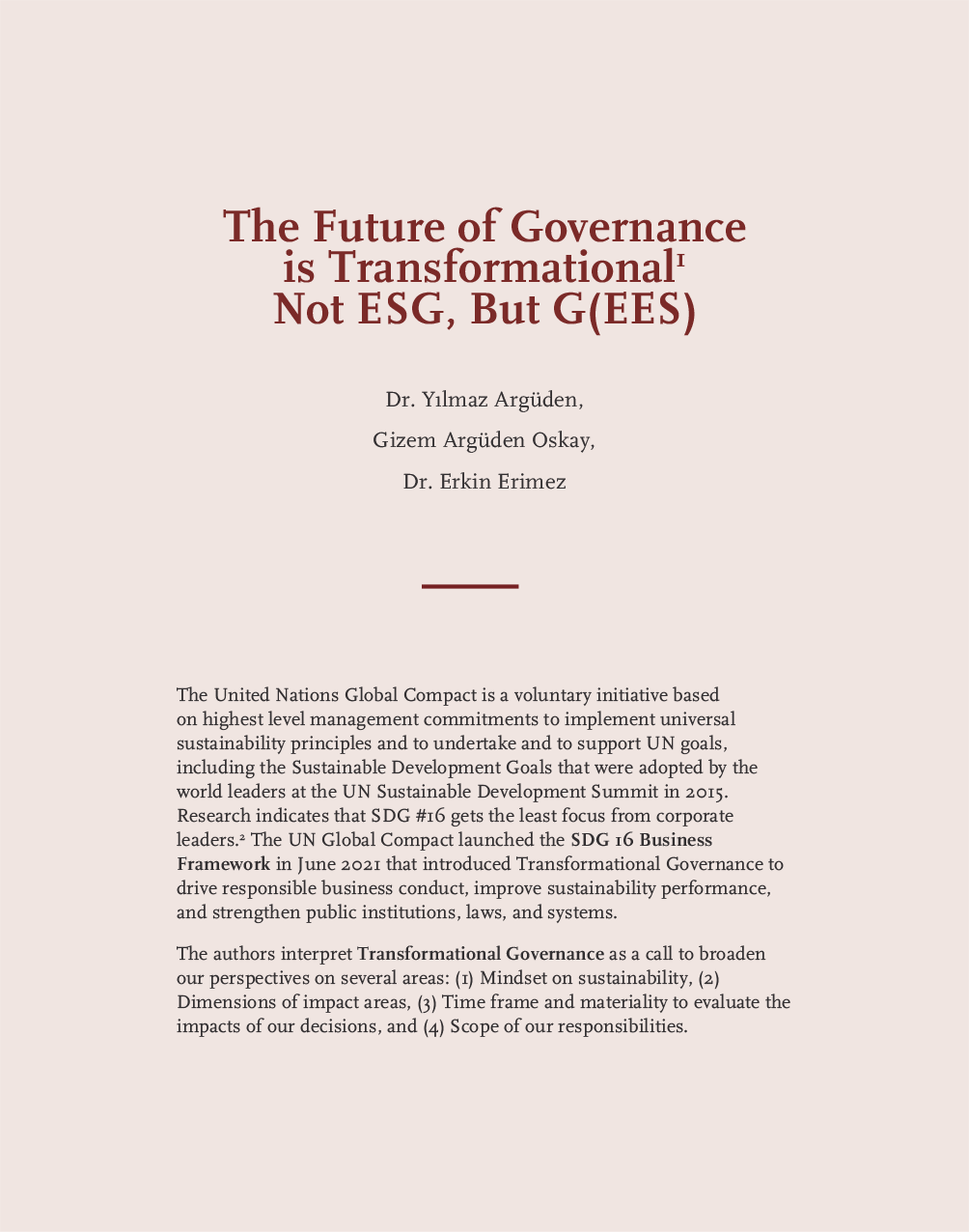Dr. Argüden’s post on transforming the mindset to build trust through G(EES)—Governance, Environment, Economy, and Social—rather than solely ESG, offers an important philosophical pivot in our approach to sustainability and corporate responsibility.
In a time when environmental, social, and governance issues are increasingly scrutinized, the focus must extend beyond checkboxes on compliance or reputational management to a more integrated, systemic vision that acknowledges the complexity of trust-building within organizations and society at large. The G(EES) approach resonates deeply, as it places governance at the heart of sustainability, acknowledging that genuine transformation requires leaders who not only act in alignment with the values of society but also engage in meaningful dialogues that foster trust and ethical accountability.
This nuanced perspective highlights the role of top management and investor relations professionals, who must embody transparency and engage proactively in the cultivation of trust. Trust, after all, is not simply a byproduct of fulfilling ESG requirements but an ongoing commitment to align corporate actions with societal values—especially in the face of global challenges. The call for leadership to not only set policies but to embody them in daily practices is critical in shaping a future where sustainability becomes the foundation of business success.
By expanding the ESG framework to encompass governance more thoroughly, we bring attention to the importance of leadership integrity, which plays an instrumental role in ensuring that companies not only respond to but also anticipate societal needs. This approach fosters resilience within organizations and broader ecosystems, equipping them to better manage emerging risks and contribute to sustainable development.
Dr. Argüden’s insightful piece is a powerful reminder that true transformation begins with a shift in how we think about and approach these complex issues—not as isolated metrics but as interconnected imperatives that require a long-term vision, innovative leadership, and a commitment to doing what is right over what is expedient.
This is a clarion call for the business world to move beyond a transactional approach to sustainability and toward a more holistic, values-driven model that builds trust at every level of society. It is through this kind of leadership that we can ensure the SDGs are not merely aspirations but realities.
#Governance #Sustainability #Trust #Leadership #ESG #SDGs #InvestorRelations #BusinessEthics #SystemicChange #LongTermVision
Keith Mawanda, March 2025
